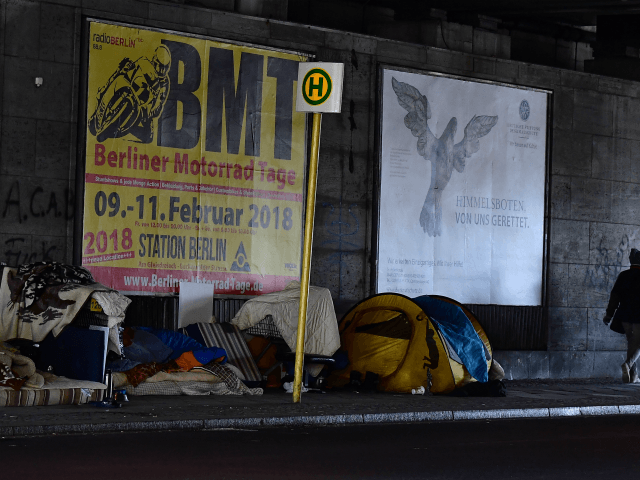New figures reveal that around 678,000 people in Germany are now without access to a permanent residence, with tens of thousands currently living on the street.
The report, released by the German Federal Working Community (BAG), shows that in 2018 there were a total of 678,000 individuals without permanent residences, of which the vast majority, 440,000 — or 64 per cent — are refugees living in collective housing, German tabloid Bild reports.
The number is an overall increase of 4.2 percent compared to 2017 and included the roughly 41,000 people who not only live without a permanent residence but also live on the streets.
BAG homelessness assistance added that the largest increase in homeless individuals came from the growing refugee population in Germany that has continued to rise despite a slowdown following the massive wave of migrants during the migrant crisis in 2015.
Werena Rosenke, managing director of BAG, told the newspaper, “There are too few social housing and affordable housing projects. The situation will not be eased in the next few months, and probably not within the next year.”
Rosenke went on to add that single parents and young adults were at the greatest risk of homelessness and added that she feared solo self-employed people and others in less secure jobs could also face homelessness as well.
Last year, German Chancellor Angela Merkel promised to spend €6.85 billion (£5.98 billion) on a variety of measures, including social housing, for newly arrived migrants.
Around €500 million was announced for housing subsidies in various German regions, while a further €1.8 billion was expected to be for accommodation.
In total, the German government spent a record 23 billion euros on asylum seekers in 2018, an amount 11 percent larger than the previous year.
Other countries in Europe that have taken in large shares of migrants and asylum seekers, such as Sweden, have also had to tackle a lack of housing.
Earlier this year, the Swedish National Board of Housing, Building, and Planning claimed that 135 municipalities who said they had housing shortages had given migrants priority for housing over young Swedes, compared to just 12 who said the opposite.

COMMENTS
Please let us know if you're having issues with commenting.